CBM Awards Scholarships for Training in Ophthalmology
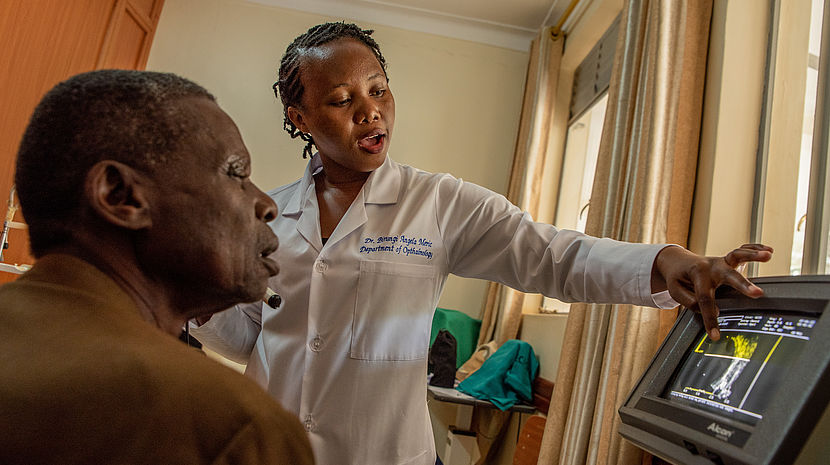
A female doctor - Dr. Angela Birungi - explains her findings to a patient Kagwisagye John Bosco diagnosed with cataracts. They are in a diagnosis room at Mbarara University of Science and Technology in Uganda.
©CBM
CBM programme builds sustainable structures in the fight against visual impairment. The aim is to improve access to equitable and quality eye care by strengthening health systems.
Twenty-two medical students from Eastern and Southern Africa and Central and Western Africa have been awarded fully funded scholarships by CBM. The scholarship recipients from Kenya, Uganda, Ethiopia, Malawi, Rwanda, Sierra Leone and Tanzania are training to become ophthalmologists at various universities in Africa.
The 22 are part of a CBM programme to build sustainable structures in the fight against visual impairment. The programme aims to improve access to equitable and quality eye care by strengthening health systems. So far, CBM has awarded 108 scholarships for Ophthalmology and 86 trainees have finalised training and graduated.
Priority is given to doctors working in underserved communities in need of eye care services. They are required by their institutions to return there to provide affordable and quality services.
The need
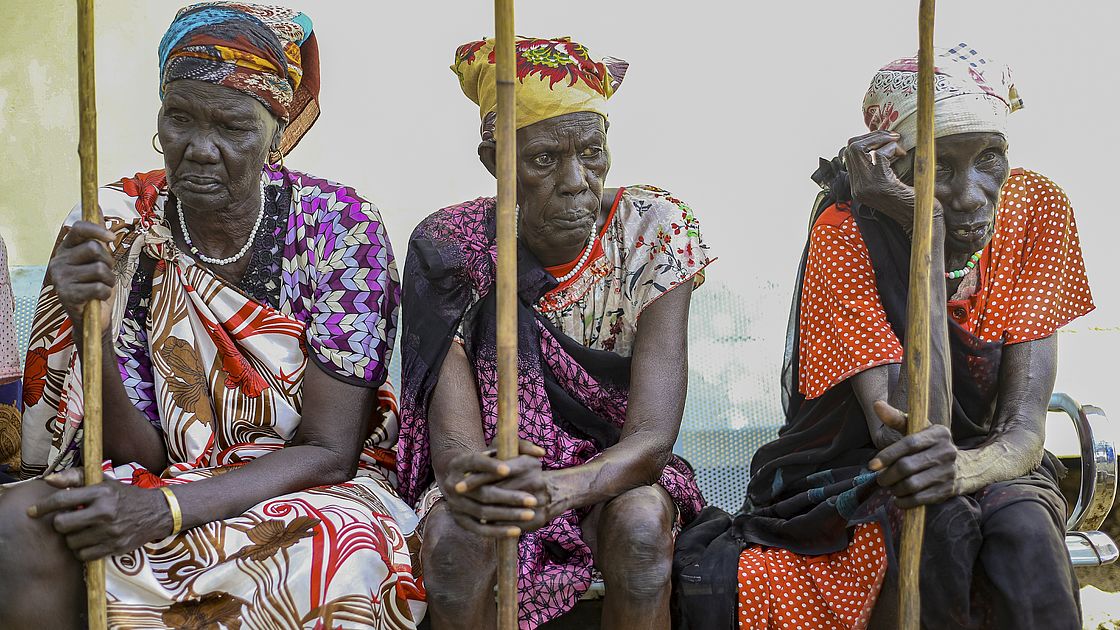
CBM/Igwala
The need for ophthalmology specialists is great in many African countries. Especially in sub-Saharan countries like Uganda and Malawi, there is a shortage of ophthalmologists who can operate on cataracts and other diseases. The number of ophthalmologists per million population ranges from 1.1 to 4.4, compared to an average of 80 ophthalmologists per million in high-income countries.
In Uganda, for example, there is only 1 ophthalmologist for every 1 million people - far less than the recommended minimum ratio. The country needs about 96 more ophthalmologists. As a result, communities often have limited access to effective treatment for more serious eye diseases.
The CBM scholarship programme aims to fill this gap: So far, it has awarded 108 scholarships for MMED in ophthalmology and 86 as ophthalmologists. Most of these ophthalmologists are working in eye health centres, helping to eliminate preventable blindness. Some work as senior lecturers in training institutions, trainers and heads of departments in mid level training institutions, heads of eye departments in teaching and referral hospitals, eye care coordinators at the Ministry of Health, and provide various specialised ophthalmology services, among others.
What is the Benefit of the Programme?
CBM has been running this scholarship programme since 2000. Students receive a first-class education that they can take with them to remote areas where ophthalmic care is scarce. The scholarship covers tuition fees, training instruments, other professional costs, and stipend.
To further strengthen its impact, the programme has now been redesigned and expanded to include training for mid-level eye care professionals such as optometrists, specialised ophthalmic nurses and low vision experts.
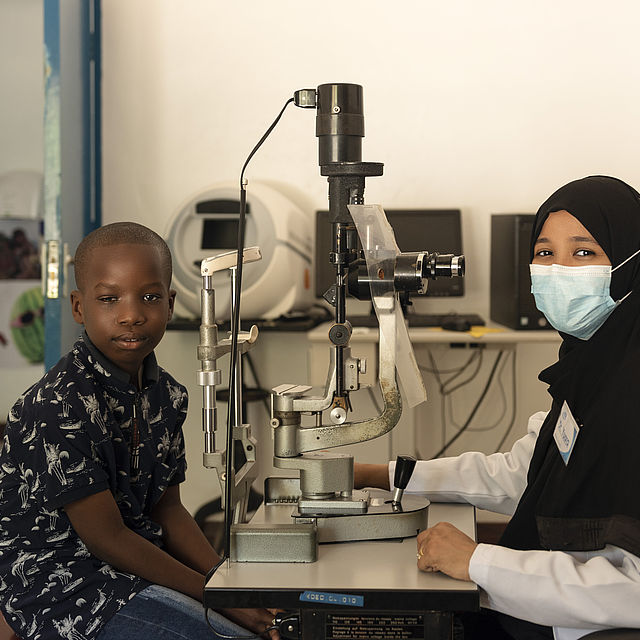
New Call for CBM Scholarship Programme Announced
Twelve scholarships will be awarded to doctors across Africa who wish to pursue a Master of Medicine in Ophthalmology (or equivalent) in the academic year 2022/2023. The scholarship package covers tuition fees, stipend, relocation expenses, in-patient medical cover for the resident, seminars, and a set of ophthalmic instruments.
How to Apply
Meet Some of the CBM Scholarship Alumni
First Female Ophthalmologist in South Sudan
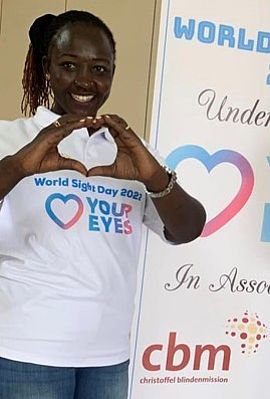
Dr Aja Paul Acuoth, a graduate of the CBM scholarship programme, is the first female ophthalmologist in South Sudan. She graduated from the University of Nairobi in 2019 and is currently working at Juba Teaching Hospital in South Sudan. She is also chairs the Ophthalmological Association of South Sudan.
In addition to her work at the hospital, Dr Aja conducts awareness campaigns on trachoma and cataract surgery to encourage annual eye examinations. On this year's World Sight Day, she actively promoted eye examinations.
Dr Christopher Mwanansao from Tanzania
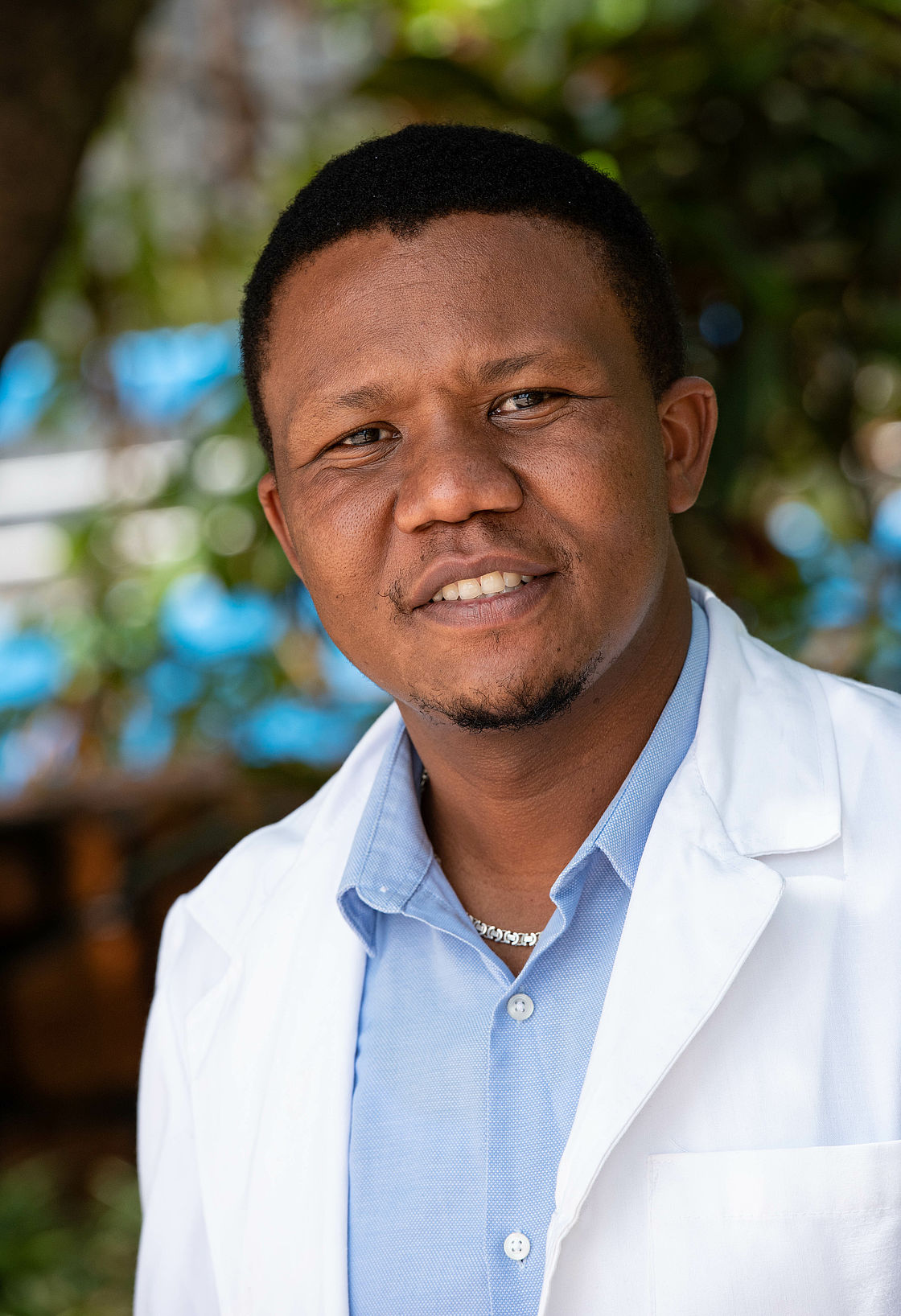
After graduating in 2016, Dr Christopher Mwanansao returned to Bugando Medical Centre in rural Mwanza, Tanzania, as an ophthalmologist and vitreoretinal surgeon.
With CBM's support, he has played a leading role in transforming the centre’s eye clinic into a fully equipped centre for ophthalmology. Before 2016, the clinic could only treat 80 patients a week. Today, the clinic treats 600 patients every week. Annual cataract surgeries have increased from 18 patients in 2016 to 1000-1200patients per year currently. The clinic also offers services in paediatric ophthalmology, diabetic retinopathy, and laser treatment.
Dr Christopher also teaches at the Bugando School of Medicine, Department of Surgery and is president of the Tanzania Ophthalmology Society.
Dr Hillary Rono from Kenya
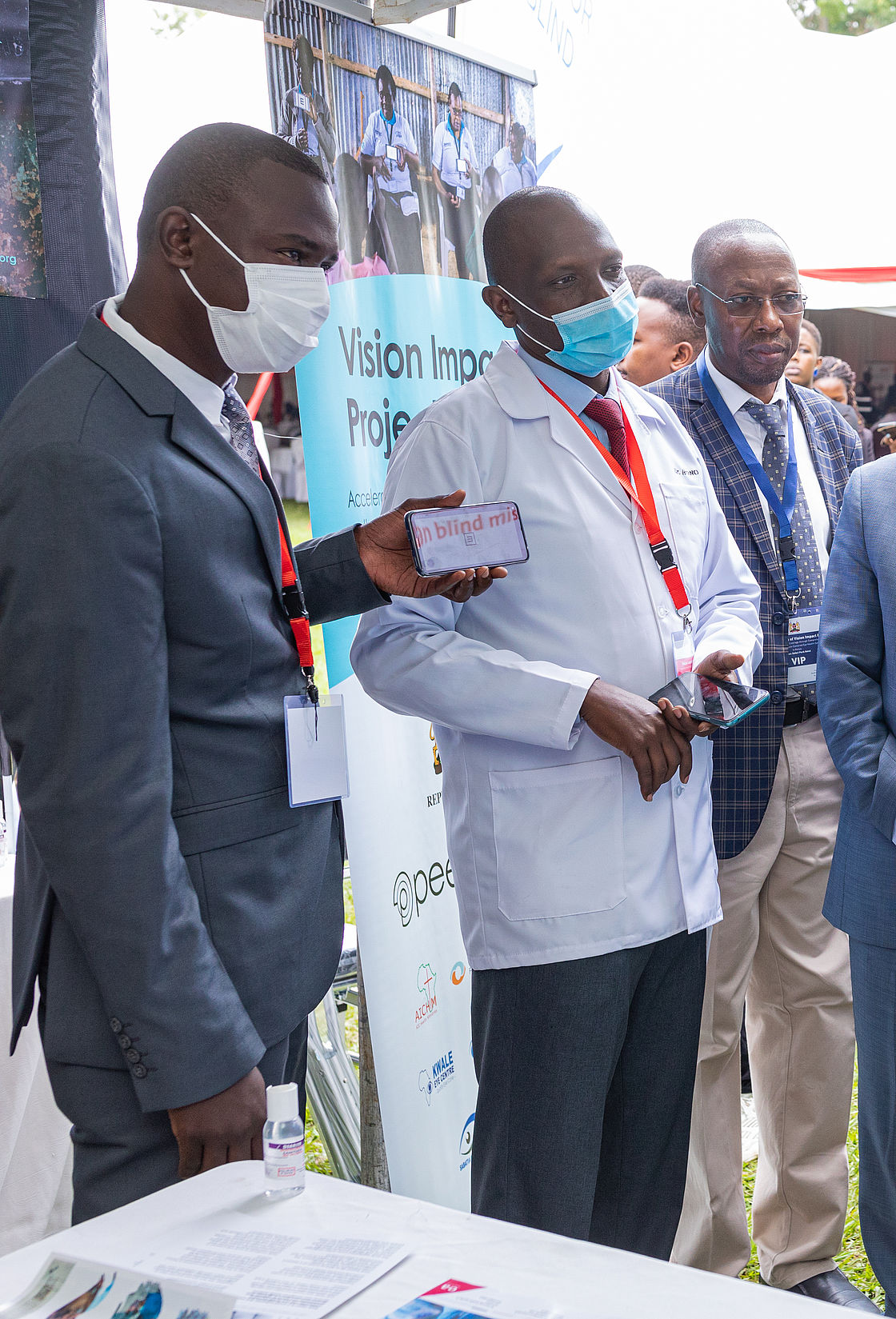
Dr Hillary Rono in the middle
Peek Vision's Country Director in Kenya, Dr Hillary Rono, a CBM scholarship alumnus graduated from the University of Nairobi in 2006. He is an eye surgeon and public health researcher. He has led the establishment and renovation of eye care facilities and teams in Trans-Nzoia County, Kenya. This includes Kitale Eye Hospital, which serves a population of 1.6 million people. He was featured by the Queen Elizabeth Diamond Jubilee Trust in their inspirational film "Double Joy". The International Agency for the Prevention of Blindness (IAPB) has named him an "Eye Health Hero". He is also the first African ophthalmologist to be awarded the Ruskell Medal by the Worshipful Company of Spectacle Makers in 2022.
The alumni will share their experiences and guide young talents. The team will meet for the first time at the annual scientific conference of the University of Ophthalmology of Eastern Central and Southern Africa in August 2023.